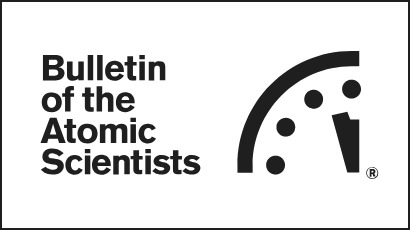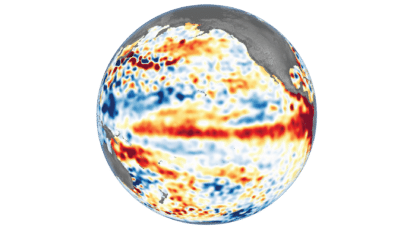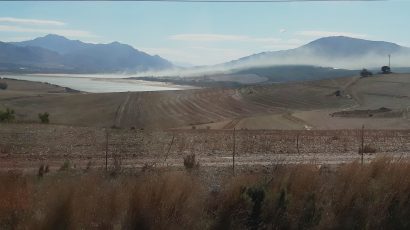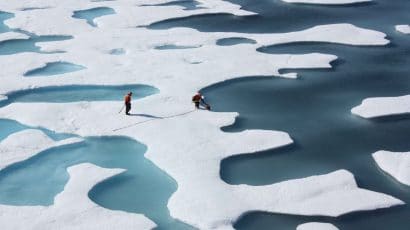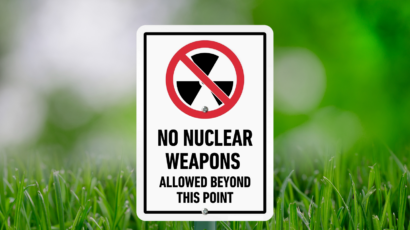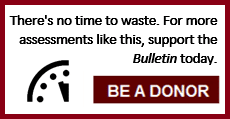Search results for
Benefits of curbing climate change far outweigh costs
It actually costs more to do nothing.
El Niño increases global health threats that require a One Health response
By | Weekly sea surface temperature patterns in the tropical Pacific. Animation of maps of sea surface temperatures in the Pacific Ocean compared to the long-term average over five-day periods from the end of January to early June 2023. The waters in the key monitoring region, which scientists call “the Niño-3.4 region,” start out cooler … Continued
A plant that could save civilization, if we let it
The carbon dioxide level in Earth’s atmosphere reached its highest level in human history last month, at 410 parts per million. Humans are a factor: We put carbon dioxide into the atmosphere, where it contributes to the warming of the planet, by burning fossil fuels. So far, Earth has warmed by 1 degree Celsius (1.8 … Continued
The spread of mosquito-borne diseases
There are approximately 2,500 mosquito species in the world, but a mere fraction of them feed on human blood. Of this fraction, only the females are vampires, as they require blood to nourish their eggs. When she's ready to lay these eggs, which usually number in the hundreds, the female typically does so on a small, still body of water. In some mosquito species, she creates little rafts for the eggs. They float until they hatch as tiny larvae a few days later. Like butterflies, they eventually turn into pupae, which ultimately metamorphose into the insects we know.
Brussels steps up as a leader in nuclear and radiological security
With a cutting-edge project in Southeast Asia, the EU asserts a trailblazing role in fighting global CBRN threats
Africa’s pursuit of nuclear power
In Africa, nearly every aspect of human development (health, agricultural, educational, or industrial) depends upon reliable access to modern energy sources. Therefore, it's worth investigating whether nuclear power can safely alleviate energy shortages and optimize an energy mix consistent with the national interests of African countries.
Corona-free? How disinformation could be clouding the true pandemic picture in Africa
World Health Organization data shows Africa accounts for about 4 percent of global COVID-19 cases, a surprisingly low number. In some countries misinformation may be obscuring the true impacts of the pandemic.
North Korea might not denuclearize, but the US Senate should
The United States would have more credibility as a critic of North Korea’s nuclear program if it joined denuclearization agreements in Africa, Central Asia, and the South Pacific.
What Cape Town learned from its drought
The ordeal was hard, but the lessons learned made it worthwhile. And Cape Town is still not out of the woods; some city reservoirs are still 90 percent empty.
Gene drives, malaria, and the back roads of Burkina Faso
A high-tech project to eliminate malaria from Africa requires the consent of local people. But how do you gain their consent when they have little idea what you’re talking about?
The Black Sea: Center of the nuclear black market
The Black Sea region is one of the world's critical crossroads, a strategic intersection of east -- west and north -- south corridors that enable the free flow of people, ideas, and goods from Asia to Europe and from former Soviet territory to the Middle East and Africa. It is also the center of the world's nuclear black market.
1978: Is mankind warming the Earth?
This report is based on a monograph the author prepared for the World Meteorological Organization in Geneva, Switzerland.
Is the spread of regional denuclearization dead? Or a path toward eventual disarmament?
Despite being an important step toward disarmament, no new zone free of nuclear weapons has entered into force since 2009—the longest stretch ever without a pact.
NATO joins the Pentagon in deeming climate change a threat multiplier
A new NATO special report concludes that climate change will make things worse in the world's most unstable regions.
Day Zero: Lessons from Cape Town’s crisis
Water expert and MacArthur “genius” award winner Peter Gleick says we can learn much from watching what happens in South Africa. Biggest lesson: The cheapest source of new water is not actually new water.
Improve the nuclear test monitoring system
To assure global coverage and a higher probability of detecting nuclear tests, if the international community must expand its monitoring system and put limits on radioactive releases from nuclear facilities
Can we remain food secure amid climate change?
As we work to arrest global warming, we must also mitigate the food security problems it will cause.
Creating a model democratic alternative to the surveillance state
Faced with a global decline in the principles of equality, freedom, transparency, and accountability, democracies must respond by turning their attention inward—and crafting a model that leads by example.
Time to limit all those other weapons, too
Following the Iran nuclear deal, there’s never been a better moment to move towards general and complete disarmament.
